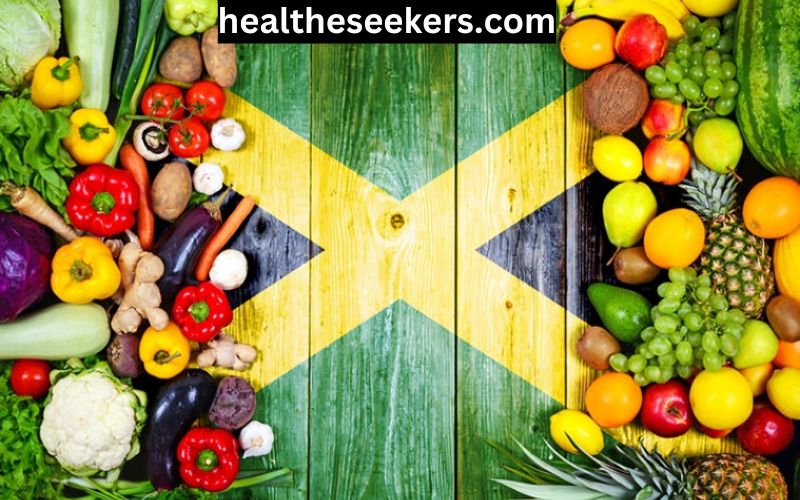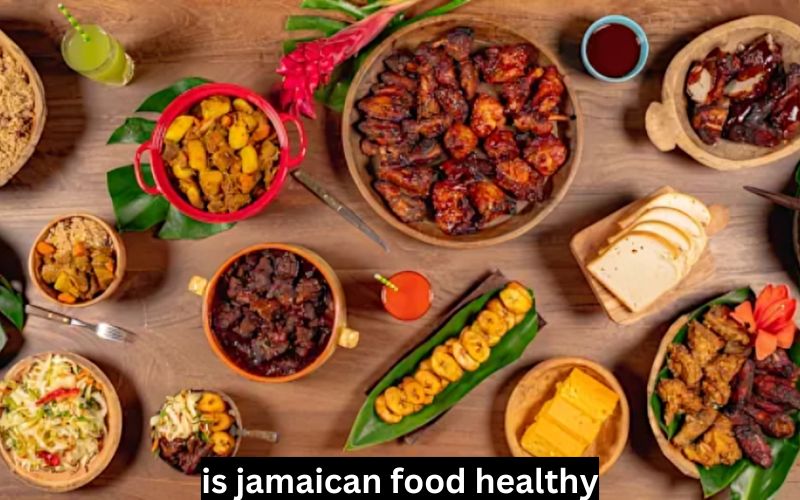Jamaican cuisine is celebrated worldwide for its rich flavors, vibrant colors, and the cultural heritage it represents. From jerk chicken to ackee and saltfish, Jamaican food is a melting pot of indigenous, African, European, and Asian influences. But with its bold spices and hearty portions, a common question arises: Is Jamaican food healthy?
To answer this question, it is important to examine the components of Jamaican cuisine, the traditional cooking methods, and the nutritional value of the ingredients. This article will explore the health benefits and potential drawbacks of Jamaican food, providing a comprehensive overview for those interested in the dietary implications of this beloved cuisine.
The Foundations of Jamaican Cuisine
Jamaican food is rooted in the island’s history and geography, with influences from the indigenous Taino people, African slaves, European colonizers, and immigrants from India and China. This blend of cultures has created a diverse and flavorful culinary tradition.
Staples of Jamaican Cuisine:
Carbohydrates: Yam, sweet potatoes, breadfruit, rice, and plantains are the primary sources of carbohydrates in Jamaican cuisine. These starchy foods are energy-dense and are often paired with proteins and vegetables.
Proteins: Common protein sources include chicken, pork, goat, fish, and legumes like red peas (kidney beans) and pigeon peas. Salted fish, particularly saltfish (cod), is also a popular protein source.
Vegetables: Callaloo (a leafy green vegetable), cabbage, carrots, and Scotch bonnet peppers are frequently used in Jamaican dishes. These vegetables provide essential vitamins and minerals.
Fruits: Tropical fruits such as mangoes, bananas, pineapples, and papayas are not only eaten as snacks but are also incorporated into savory dishes.
Herbs and Spices: Pimento (allspice), thyme, scallions, and ginger are staples in Jamaican cooking, adding depth and complexity to the flavors.

Health Benefits of Jamaican Food
Jamaican food has several health benefits, especially when traditional cooking methods and whole, unprocessed ingredients are used.
Rich in Nutrients:
High Fiber Content: Many Jamaican staples like yam, sweet potatoes, and legumes are high in dietary fiber. Fiber aids digestion, helps control blood sugar levels, and can reduce the risk of heart disease.
Vitamins and Minerals: Jamaican cuisine is rich in vitamins and minerals, thanks to the abundant use of vegetables and fruits. For example, callaloo is high in iron and vitamin C, while Scotch bonnet peppers are rich in vitamin A and C.
Antioxidants: Many Jamaican herbs and spices, such as ginger, garlic, and thyme, are known for their antioxidant properties. Antioxidants help protect the body against free radicals, which can damage cells and contribute to chronic diseases.
Use of Whole Foods:
Traditional Jamaican cooking often involves whole, unprocessed foods. Meals are typically made from scratch using fresh ingredients, which means they are free from the added sugars, unhealthy fats, and preservatives found in many processed foods.
The use of natural seasonings and marinades, like the jerk seasoning, enhances the flavor of dishes without relying on excessive amounts of salt or unhealthy additives.
Balanced Meals:
Jamaican meals often combine proteins, carbohydrates, and vegetables, providing a balanced mix of macronutrients. For example, a typical meal might include rice and peas (rice cooked with kidney beans), jerk chicken, and a side of steamed vegetables, offering a good balance of protein, fiber, and vitamins.
Healthy Fats:
Coconut oil and coconut milk are commonly used in Jamaican cooking. Although coconut oil is high in saturated fat, it contains medium-chain triglycerides (MCTs), which are easier to digest and may have potential health benefits, such as supporting weight loss and improving energy levels.
Fish, especially saltwater varieties like mackerel, is a staple in Jamaican cuisine and is high in omega-3 fatty acids, which are beneficial for heart health.
Potential Drawbacks of Jamaican Food
While Jamaican food has many health benefits, certain aspects of the cuisine can pose health risks if consumed in excess or if traditional cooking methods are altered.
High Sodium Content:
Salted fish, such as saltfish, is a common ingredient in Jamaican dishes. While it provides a good source of protein, it is also very high in sodium. Consuming too much sodium can lead to high blood pressure, which increases the risk of heart disease and stroke.
Processed seasonings and sauces, like soy sauce or bouillon cubes, are sometimes used in modern Jamaican cooking, adding additional sodium to meals.
High-Calorie Dishes:
Some traditional Jamaican dishes, like festival (a type of fried dumpling) and bammy (a deep-fried cassava flatbread), are calorie-dense and can contribute to weight gain if eaten frequently and in large portions.
Coconut milk, a staple in dishes like curry goat and rice and peas, is high in calories. While it provides healthy fats, consuming it in large quantities can lead to an excessive calorie intake.
Fried Foods:
Deep-frying is a common cooking method in Jamaican cuisine, used for dishes like fried dumplings, plantains, and fish. While these foods can be enjoyed in moderation, consuming too many fried foods can increase the risk of heart disease and obesity due to the high levels of unhealthy fats and calories.
Sugary Beverages:
Jamaican cuisine includes a variety of sweet beverages, such as sorrel drink (made from hibiscus flowers), ginger beer, and fruit juices. These drinks are often sweetened with sugar or honey, leading to a high sugar content. Excessive consumption of sugary beverages can contribute to obesity, diabetes, and other health issues.
Traditional Jamaican Dishes: A Closer Look at Their Nutritional Profiles
To better understand the healthiness of Jamaican food, let’s examine the nutritional profiles of some popular traditional dishes.
Jerk Chicken:
Ingredients: Chicken marinated in a spicy mixture of pimento (allspice), Scotch bonnet peppers, thyme, garlic, and ginger, then grilled or smoked.
Nutritional Value: Jerk chicken is a good source of lean protein and contains beneficial antioxidants from the spices used in the marinade. The cooking method (grilling or smoking) reduces the fat content compared to frying.
Health Considerations: While jerk chicken is generally healthy, the sodium content can be high if additional salt is used in the marinade. Pairing it with vegetables and whole grains can create a balanced meal.
Ackee and Saltfish:
Ingredients: Ackee (a fruit) sautéed with salted codfish, onions, tomatoes, and Scotch bonnet peppers.
Nutritional Value: Ackee is rich in healthy fats, vitamin C, and fiber, while saltfish provides protein and essential omega-3 fatty acids.
Health Considerations: The high sodium content in saltfish is a concern. Rinsing the fish thoroughly before cooking can reduce the sodium levels. Consuming this dish with vegetables and reducing the portion size of saltfish can help maintain a balanced diet.
Rice and Peas:
Ingredients: Rice cooked with kidney beans (red peas), coconut milk, garlic, thyme, and scallions.
Nutritional Value: This dish provides a good source of carbohydrates, fiber, and protein from the kidney beans. Coconut milk adds healthy fats, though it also increases the calorie content.
Health Considerations: While rice and peas are nutritious, the calorie content can be high due to the coconut milk. Using less coconut milk or opting for a lighter version can reduce the calorie load.
Callaloo:
Ingredients: A leafy green vegetable, typically sautéed with onions, tomatoes, garlic, and thyme.
Nutritional Value: Callaloo is low in calories but high in vitamins A and C, iron, and calcium. It is also a good source of dietary fiber.
Health Considerations: Callaloo is an excellent addition to any diet. It is nutrient-dense and low in calories, making it ideal for weight management and overall health.
Curried Goat:
Ingredients: Goat meat cooked in a curry sauce made with turmeric, cumin, garlic, onions, and Scotch bonnet peppers.
Nutritional Value: Goat meat is leaner than beef and provides a good source of protein, iron, and vitamin B12. The curry spices add anti-inflammatory benefits due to the presence of turmeric.
Health Considerations: Curried goat can be high in sodium and fat, especially if the dish is made with fatty cuts of meat. Using lean cuts and controlling portion sizes can make this dish a healthier option.
Modern Adaptations and Healthier Choices
With the increasing awareness of health and wellness, many people are looking for ways to enjoy traditional Jamaican food while making healthier choices. Here are some tips for adapting Jamaican recipes to be more health-conscious:
Use Leaner Cuts of Meat:
When preparing dishes like jerk chicken or curried goat, opt for leaner cuts of meat to reduce the fat content. Skinless chicken breasts or thighs are a good alternative to fattier cuts.
Reduce Sodium:
To lower the sodium content in dishes like ackee and saltfish or soups, rinse salted fish thoroughly before cooking and use herbs and spices instead of salt for seasoning.
Choose Healthier Cooking Methods:
Instead of frying, try grilling, baking, or steaming your food. For example, grill plantains instead of frying them, or bake festival dumplings instead of deep-frying them.
Limit the Use of Coconut Milk:
- Coconut milk is delicious but calorie-dense. Use light coconut milk or reduce the amount in recipes like rice and peas or curried dishes.
Increase Vegetable Intake:
Add more vegetables to your meals to boost the fiber and nutrient content. Incorporate side dishes like steamed callaloo, boiled green bananas, or a simple salad with your main course.
Watch Portion Sizes:
Jamaican food is often served in generous portions. To avoid overeating, be mindful of portion sizes, especially with calorie-dense foods like rice, dumplings, and fried dishes.
Choose Healthier Beverages:
Instead of sugary drinks, opt for water, unsweetened herbal teas, or natural fruit juices without added sugar. Infusing water with slices of tropical fruits like mango or pineapple can add flavor without the extra calories.
The Role of Jamaican Food in a Balanced Diet
Jamaican food, like any cuisine, can be part of a healthy and balanced diet when consumed in moderation and prepared using healthy cooking methods. It offers a variety of nutrient-dense foods, including lean proteins, whole grains, vegetables, and fruits, which contribute to overall health and well-being.
Cultural Significance and Food Enjoyment:
Food is an integral part of Jamaican culture and heritage. It’s not just about nutrition; it’s also about enjoying the rich flavors, sharing meals with family and friends, and celebrating cultural traditions.
While it’s important to be mindful of health, it’s also essential to enjoy food and the cultural connections it brings. Moderation and balance are key to enjoying Jamaican food as part of a healthy lifestyle.
Integrating Jamaican Food into a Global Diet:
Jamaican cuisine can easily be integrated into a global diet. The emphasis on fresh ingredients, flavorful herbs, and balanced meals aligns with many modern dietary recommendations.
Whether you’re in Jamaica or anywhere else in the world, incorporating elements of Jamaican cuisine into your diet can add variety and nutritional value to your meals.
See Also: Girdwood Health Clinic Announces New CEO
Conclusion:
In conclusion, Jamaican food can be both healthy and delicious, offering a range of nutrients from its diverse ingredients. The use of whole foods, fresh vegetables, lean proteins, and natural seasonings makes it a nutritious choice when prepared with health in mind. However, like any cuisine, it’s essential to be aware of potential pitfalls, such as high sodium, calorie-dense dishes, and fried foods, and to make mindful choices.
By embracing traditional cooking methods, choosing healthier alternatives, and practicing moderation, Jamaican food can be a valuable part of a balanced and healthy diet. Whether you’re savoring a spicy jerk chicken, enjoying a bowl of rice and peas, or indulging in the sweetness of tropical fruits, you can relish the rich culinary heritage of Jamaica while nourishing your body.
Jamaican food is more than just sustenance; it’s a vibrant expression of culture and community. With a few adjustments, it can also be a path to better health and well-being.




